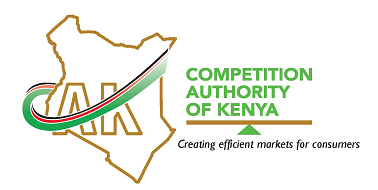Promoting Consumer Welfare Through Implementation Of The Competition Policy
The competition regime in Kenya commenced 12 years ago and continues to impact Kenyans positively as envisaged in the Competition Authority’s motto “creating efficient markets for consumers”. Identifying and prioritizing sectors that are essential for Kenya’s economic development and that contribute to consumer welfare further contributes to the realization of Vision 2030. For instance, the Authority has previously intervened in the financial sector to enhance the welfare of millions of Kenyans who were previously disenfranchised.
Twenty-six years ago, while on a school trip, my father ‘wired’ some money through the then Postbank MoneyGram money transfer service. To access the funds, I had to physically visit a branch. Years later, an innovative mobile money transfer service that has made such transactions instantaneous, was launched.
However, innovation begets challenges that limit their efficacy. In the case of mobile money transactions, you could determine the cost of sending the funds in advance. Secondly, the inability to transact across the wallets of different telecommunication operators meant that you had to walk far to access the services of other operators.
The Authority ordered all financial service providers offering services via mobile phones to ensure that consumers are apprised of all fees and charges prior to executing a transaction and furnish them with detailed receipts. Further, opening up of the mobile money agents’ market enabled Kenyan customers to access services of different mobile network operators easily, while there are ongoing efforts to fully implement interoperability. The regulatory intervention saw the number of active agents increase from 138,000 in 2015 to 336,000 in 2023.
When discussions about Kenya’s retail sector arise, they eventually segue to the collapse of Nakumatt, Uchumi, and Tuskys Supermarkets which collectively sunk with over KES 40 billion worth of suppliers' money, most of whom are SMEs. This critical sector contributes over 6% to the GDP and directly and indirectly sustains over 250,000 people.
Amendments to the Competition Act in 2019 empowered the Authority to attend to some of the issues that precipitated the aforementioned collapse, including attending to the issue of delayed payments, monitoring sectors that are deemed susceptible, and intervening, including facilitating self-regulation and increased accountability between suppliers, businesses, and associations. In the retail sector, such interventions resulted in a recovery of over KES 3 Billion in delayed payments resulting in the growth and survival of these businesses, over the last four years.
Lastly, restrictive and unfair rules in the tea sector prevented businesses such as Njeru Industries from entering the market. Such aspiring investors required to get a letter of no objection from the incumbents. Expunging of this anti-competitive requirement enabled the business to set up a purple tea factory in Meru County. The KES 62 Million investment provided smallholder producers with new markets, provided hundreds of Kenyans with employment, while offering consumers a wider range of specialty tea products thus increasing consumer choice and bringing in much-needed foreign exchange from the exports.
The World Competition Day, which is commemorated annually on December 5, calls on policymakers and regulators, including competition agencies, to urgently identify and prioritize sensitive sectors. These sectors facilitate investment in the economy, promote efficiencies to the general public, especially those at the bottom of the pyramid, and are enablers in the realization of SDG 1 on No Poverty and increased consumer welfare.
In conclusion, let me highlight three areas that competition agencies should focus on in promoting consumer welfare.
First, competition agencies should foster self-regulation by collaborating with industry players to develop tools such as codes of practice that regulate the relationship between the two parties to ensure that none of the parties will abuse their market power. In our view, this will promote fair competition and attract new market entrants, therefore increasing consumer choice and contributing to economic development.
Secondly, competition agencies should periodically measure the impact of their decisions to enable them to design current interventions, and where necessary review the enforcement instruments. Impact assessment ensures that agencies remain accountable for resources allocated to them by promoting transparency and is the basis for advocating for more resources as it helps demonstrate the effect of actions taken.
Lastly, competition agencies should develop and implement prioritization guidelines. The guidelines ensure that resources are allocated to the most impactful areas of enforcement. Those that produce the greatest positive outcomes for the citizens and the economy, through either promoting investment or extinguishing unfair practices that increase barriers to entry. The success of competition agencies should not be pegged on the penalties or fines imposed, but rather on the impact produced by their interventions through change in the behavior of the market players.

